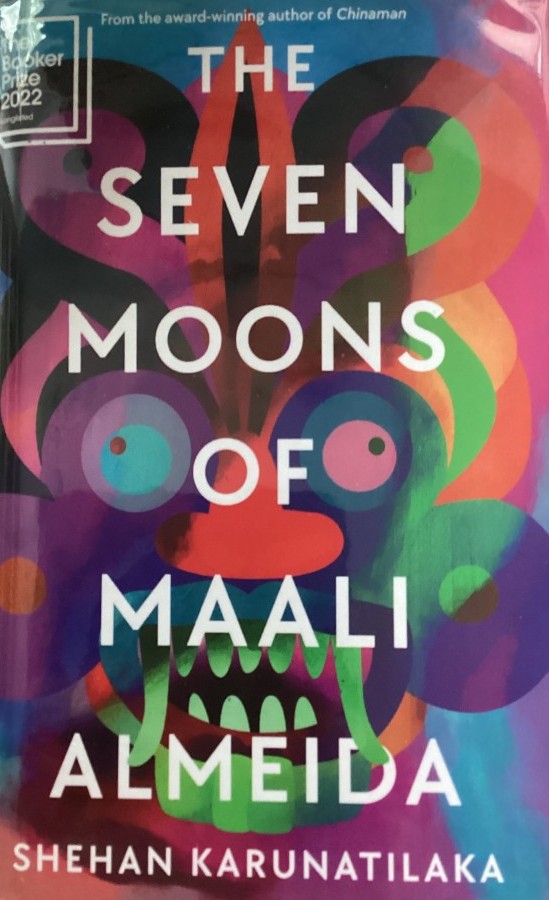Inspiring Older Readers
 posted on 26 Jul 2023
posted on 26 Jul 2023
The Seven Moons of Maali Almeida by Shehan Karunatilaka
Shehan Karunatilaka’s novel won the 2022 Booker Prize and, to be honest, I’ve become a little cynical about the amount of praise book award winners seem to have lavished on them – too often even good books get swamped under hyperbolic praise and set up expectations that can never be met. But I will say upfront that The Seven Moons of Maali Almeida is one of the most remarkable novels I have picked up for a long time and, on this occasion, the accolades it received seem entirely justifiable. That’s not to say that the book is without it faults – it is, I think, fifty or sixty pages too long and the dense complexity of Sri Lankan politics in the 80s and 90s (and now as far as I know), makes it hard at times to stay on top of the web of connections that you need to make. But, having said that, the book is a visceral and pyrotechnic experience – and one best read in long passages rather than is very short bursts.
The story is told in the second person where we meet Maali Almeida in the ‘Inbetween’ world. Maali is a war photographer who has worked for all sides in the various civil wars that raged across Sri Lanka in the 80s and it turns out he’s dead and in a sort of bureaucratic waiting room of the afterlife. He tells us that if he had a business-card he’d describe himself in three words: ‘Photographer. Gambler. Slut’ and he’s also an atheist – so he’s having some difficulty accepting that he’s actually dead and not tripping on drugs.
When he finally comes to terms with the fact that he’s been killed and crudely dismembered by a death squad, he discovers he has the passing of ‘seven moons’ in which to come to terms with his fate and to decide whether he is going to ‘the Light’ where he will be reborn or stay in the underworld as some kind of demon. Maali decides he wants to use his seven moons to somehow alert his friends to the existence of a cache of photographs he has hidden away which will, he thinks, help bring down some of the corrupt politicians who have masterminded the slaughter of the civil wars. He also hopes that he will also discover why he has been killed and who was behind his death.
What follows is always teetering on the edge of magic realism without ever quite tipping over into that format – but surrealism mixes with history and traditional tales to create a quite different sort of confection. Maali goes on a quest to find out how he can learn to ‘whisper’ to his best friend Jaki and his gay lover D.D. and tell them he is dead and that his photographs must be found – hidden, it turns out, in his record collection in two albums he thinks no-one in the right mind would want to listen to.
Along the way we meet all sorts of characters from the ‘real’ world – police, corrupt politicians, campaigners, psychics – and take a tour of the chaotic ‘inbetween’ world of the dead as they await their final fate. The book is a plunge into a maelstrom that requires you, as a reader, to surf on the waves of prose that could take you from horror to humour and from outrage to even greater outrage. But I’m also aware that this is a book you might find impenetrable or impossible to stay with – I think it’s a book you’ll either love or hate but it certainly isn’t one you can be indifferent to. I’ve barely touched on the complexity of the book and you really do need to try it to discover the full flavour. Gayatri Devi, Professor of English at the Savannah College of Art and Design in Savannah, Georgia writing for the Asian Review of Books concludes:
“Karunatilaka’s civil war novel is a fearless take on a vast and painful national subject not to restage historical inequities and hostilities, but to stand with Sri Lanka by amplifying the voices of its dead against oblivion and invisibility in the march of time.”
The book is now available in paperback – so expect to pay well under £10 for a copy.
Terry Potter
July 2023